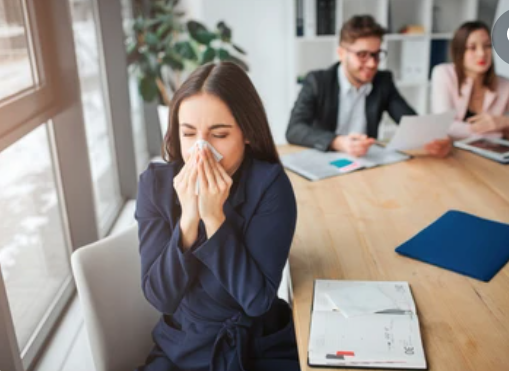You may feel a little off colour. A few sniffles, a
headache, some aches and pains. But you ‘soldier on’ – such a common and
acceptable term that it’s even been used in an ad for a cold remedy.
‘Soldiering on’ is also known as ‘sickness presenteeism –
being at work but being ineffective due to ill health. Presenteeism is also
used to describe working excessively long hours, and working when you are
burned out or mentally unwell.
We know absenteeism can be a problem for workplace, but
presenteeism can be an even bigger issue. A study by the World Health
Organization suggested that while absenteeism costs companies about 4 days a
year per employee, up to 57.5 days are lost to presenteeism.

Since the pandemic we have learnt not to show up to work if
we have tested positive to COVID-19, not least for the sake of our workmates’
health and that of their families. So what should you do instead to get better
quickly?
- OTC remedies. It is tempting to
pop a pain reliever or flu remedy and head off to work. After all, they make
you feel much better. But while these may help cover the symptoms, they do
nothing to address the cause of the illness, and you will still be infectious.
Stay home until your symptoms stop.
- Take time to recover. If you do
not take time off, it is going to take you longer to recover, whether you are
working from your workplace or working from home.
While working from home does mean you will not spread a
contagious illness to your workmates, there are downsides. Studies show that
wherever you work, working while sick will affect the quality of your work, can
increase the risks of poor health in the future, and increases the risk that
you will have to take more time off due to sickness 18 months later.